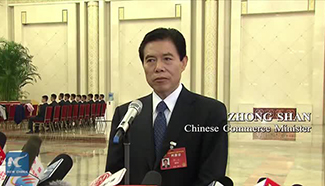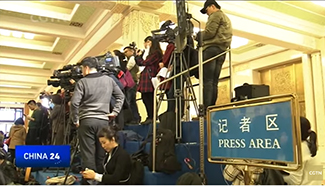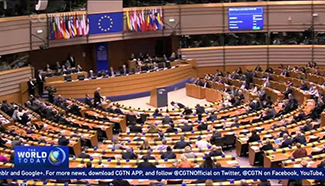by Fuad Rajeh
ADEN, March 4 (Xinhua) -- The U.S. conducted tens of raids by manned and unmanned aircraft as well as warships targeting AQAP in Yemen in the past 48 hours, in what observers said has marked a change to the U.S. war on terror in the war-torn country.
The U.S. has been targeting AQAP with drones in many parts of Yemen for more than a decade.
On January 29, a US commando raid was carried out in Baidha province in which 25 civilians and a US navy seal were killed during battles with AQAP militants. That was the first time US forces engaged in a ground fight with militants in Yemen.
Nabil Albukiri, a researcher specialized in Islamist groups, said the latest raids either the one in January or those this month marked a major change in the US war on terror in Yemen while expecting further direct US military intervention in the country.
However, Albukiri downplayed the impact of direct foreign military intervention to fight militant groups in Yemen.
"Actually, military interventions make terrorism change from a containable and individual problem into a very complicated and community phenomenon especially in Arab and Muslim countries," Albukiri said.
"Saying the U.S. war on terror is counterproductive is not new. The US has had many experiences in this context including the war in Afghanistan. The result is clear: terrorist groups, latest ISIL, are continuing to grow and strike," he added.
The latest raids were carried out in the provinces of Baidha, Abyan and Shabwa where AQAP has been expanding for years.
Al-Qaida has been expanding in these regions since unrest swept across Yemen in 2011.
With direct support from the US and recently from the Arab coalition led by Saudi Arabia, the government drove militants out of areas they had seized in Abyan, Shabwa and Hadramout several times.
But AQAP has been taking advantage of the ongoing conflict between the government and the Houthi-Saleh alliance as well as security vacuum in southern and southeastern regions liberated from the Houthi-Saleh forces.
The Pentagon said it carried out 20 raids in Yemen on March 2. However, locals estimated the raids were between 30 and 40 in the three provinces. At least 11 Al-Qaida militants were killed and several civilians injured in them, local and security sources said.
Yaseen Al-Tamimi, a political analyst and writer, said the death of the US navy seal in the January's raid has triggered wide criticism of the US counterterror efforts and "now the US administration is apparently seeking to cover its failure and escape criticism through launching more raids in Yemen."
Ahmed Noman, an expert at the Red Sea and East Africa Research Center, said the U.S. is picturing AQAP as an extremely dangerous group in order to intervene and then restore its status and role in the region amid increasing Russian influence.
"The results from the latest huge U.S. intervention were so modest with a small number of militants killed. And that is why I say the U.S. is just seeking to make Yemen an open arena for counterterror operations or an alternative place for show after it has lost influence in Syria primarily because of Russia," Noman elaborated.
The London-based bureau of investigative journalism has documented at least 186 U.S. air and drone strikes and Special Forces raids in Yemen since 2002. At least 853 people have been killed, 158 of them were reported to be civilians, according to the bureau.
The Yemeni government has not commented on the latest raids which the U.S. said had been carried out in partnership with it.
Observers ruled out that U.S. military intervention will affect the course of the ongoing conflict between the legitimate government backed by the Saudi-led coalition and the alliance of the former president and Iran-backed Houthi-militants, nor was it a message to any group but Al-Qaida.
Saudi Arabia has been bombing Yemen since March 2015 with direct support from the U.S., the UK and other Western and other allies.
On the ground, the Saudi-led coalition has been providing direct support to the government forces fighting the Houthi-Saleh forces for two years.












